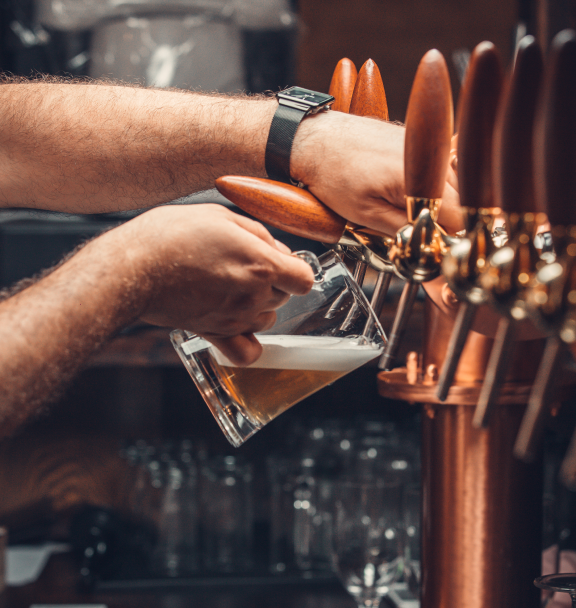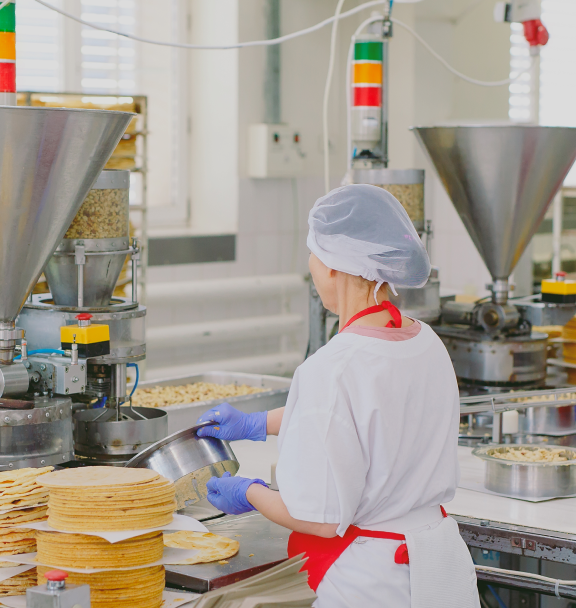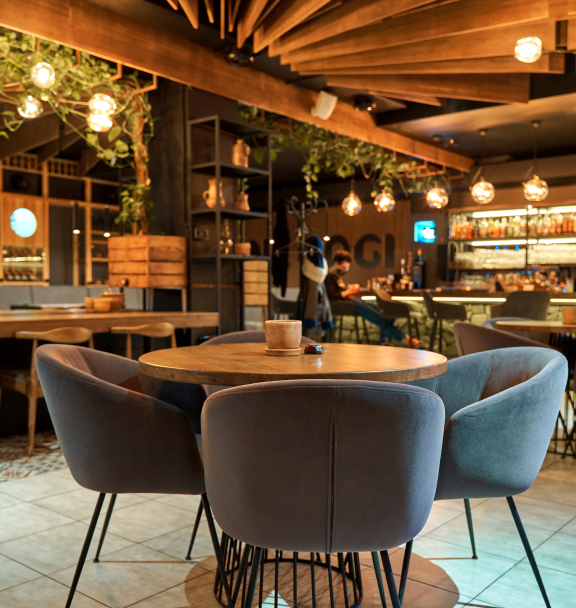Food and Beverages
Building a Customer Centric Sustainable Business


SEGMENTS OF F&B
Discover the various segments of this fast emerging industry.
Key Success Factors
- Quality and Taste
- Innovation
- Supply Chain Management
- Customer Experience
- Health and Wellness Trends
- Marketing and Branding
- Regulatory Compliance
- Technology Integration
- Employee Training and Management
- Cost Control
Challenges with F&B Industry


Visible and Control
- Lack of operational visibility.
- Lack of a holistic view of the business.
- Material weakness in financial audits.


Performance & Efficiency
- Inefficient supply chain execution.
- Ineffective cash management.
- Absence of responsive manufacturing operations.


Maximizing Contributions From IT Investments
- Cost of downtime and the ability to bounce back after downtime.
- Need for continued investments in IT infrastructure.
- Drawing tangible benefits from IT.



Regulatory Compliance & Reporting
- Staying current with statutory requirements.
- Complying with industry-specific standards.
- Avoiding fines for not meeting audits.


Business Profitability
- Sub-optimal resource utilization.
- Poor quality processes.
- Bloated inventory.
Digital Transformation of FnB industry ✨
01
Supply Chain Optimization

02
Smart Manufacturing

03
Digital Marketing and Customer Engagement

04
E-commerce and Online Ordering

05
Data Analytics for Decision-Making

06
Food Safety and Traceability

07
Digital Menu Boards and Kiosks

08
Cloud-Based Solutions

09
Employee Training and Management

10
Sustainability and Waste Reduction

11
Smart Packaging and Labeling

Need of ERP in F&B Industry ✨
01
Recipe and Formula Management
Facilitates precision in production processes and quick adaptation to market trends.

02
Regulatory Compliance
Ensures adherence to stringent food safety and quality regulations.

03
Supply Chain Visibility
Enhances transparency, from sourcing raw materials to delivering finished products.

04
Inventory Optimization
Minimizes waste and ensures optimal stock levels for efficient operations.

05
Quality Control
Enables systematic monitoring and control of product quality throughout the manufacturing lifecycle.

06
Demand Planning
Aligns production with market demand, reducing excess inventory and minimizing shortages.


07
Efficient Operations
Streamlines processes, from order placement to delivery, improving overall efficiency.

08
Traceability
Provides end-to-end traceability, crucial for managing recalls and ensuring product safety.

09
Data-Driven Decision-Making
Utilizes analytics for informed decision-making and continuous process improvement.

10
Customer Satisfaction
Enhances service levels, delivery accuracy, and overall customer experience.

11
Cost Management
Optimizes resource utilization, leading to cost savings and improved profitability.

12
Agility and Innovation
Supports rapid adaptation to changing market conditions and fosters innovation in product development.
Frequently Asked Questions
What is in the Food and Beverage Industry?
Why is the F&B Industry Important?
What is F&B Service?
What is F&B ServiceWhat are the 2 types of food and beverage operations?
What are the 4 main objectives of food and beverage service?







